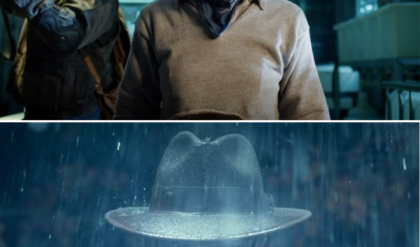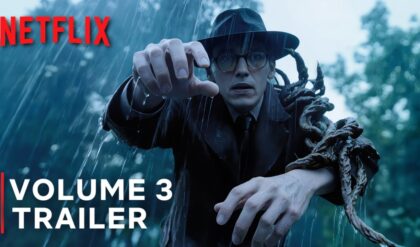Wuchang: Fallen Feathers is SKYROCKETING up Steam charts! 🚀 This soulslike RPG is winning gamers’ hearts by REJECTING “woke” agendas and focusing on gritty combat and epic storytelling. X is buzzing with praise for its Ming Dynasty vibe and brutal boss fights. Is this the game fans have been craving?

In the ever-evolving world of gaming, few titles generate as much buzz as Wuchang: Fallen Feathers, a soulslike action RPG developed by Chinese studio Leenzee and published by 505 Games. Set to release on July 24, 2025, for Xbox Series X/S, PlayStation 5, and PC, the game has surged up Steam’s most-wishlisted and top-seller charts, fueled by a narrative that it “rejects woke crap” and prioritizes what gamers want: intense combat, rich storytelling, and a dark, immersive world. Posts on X and YouTube videos have hailed the game as a “non-woke revolution,” crediting its success to listening to fans over pushing progressive agendas. But is Wuchang truly a rebellion against modern gaming trends, or is its meteoric rise a product of clever marketing and fan-driven hype? Let’s dive into the game’s premise, the controversy surrounding its “anti-woke” label, and its potential to redefine the soulslike genre.
The World of Wuchang: Fallen Feathers
Wuchang: Fallen Feathers transports players to the land of Shu during the chaotic final years of China’s Ming Dynasty, a period marked by warring factions, rebellion, and a mysterious plague known as the Feathering disease. The protagonist, Bai Wuchang, is a female pirate warrior struck by amnesia and afflicted by this horrific illness, which grants her supernatural powers but threatens to transform her into a monstrous creature. Players navigate an open world filled with forgotten temples, misty villages, and blood-soaked battlefields, battling grotesque abominations and uncovering the truth behind Wuchang’s past. The game’s narrative draws on ancient Shu civilization myths, blending historical figures like Zhang Xianzhong with Cthulhu-like horror and a haunting soundtrack by Anti-General, fusing traditional Chinese instruments with electric guitar.
Gameplay is a hallmark of the soulslike genre, emphasizing high difficulty, deliberate combat, and environmental storytelling. Wuchang wields a variety of weapons—double-handed axes, dual blades, ancient firearms—and can harness Feathering magic to unleash devastating combos. The “Skyborn Might” system allows players to adapt to enemies in real-time, chaining melee strikes, spells, and weapon techniques. Boss fights, like the multi-phase battle against the “Perfect Bride,” are designed to test skill and resolve, with trailers showcasing grotesque creatures and intricate combat mechanics. The game’s atmospheric visuals, inspired by Bloodborne and Sekiro, have drawn comparisons to Black Myth: Wukong, another Chinese-developed hit that captivated Western audiences.
Wuchang’s pre-launch success is undeniable. Since opening pre-orders in April 2025, it has climbed to fifth place among Steam’s top sellers and consistently ranks among the most anticipated titles. Its inclusion in Xbox Game Pass on day one, competitive $49.99 price point, and deluxe edition bonuses—like the “Knight and White” costume pack and “Blood of Changing” skill upgrade—have fueled excitement. Community sentiment, as seen in Steam discussions and Reddit threads, is overwhelmingly positive, with fans praising its polished trailers and challenging gameplay.
The “Anti-Woke” Narrative: Fact or Fan Fiction?
The claim that Wuchang: Fallen Feathers “rejects woke crap” originated on X and YouTube, with channels like Vara_Dark and posts from users like @Wokenessisevil touting the game as a response to gamer frustrations with progressive messaging in titles like The Last of Us Part II or Marvel’s Spider-Man: Miles Morales. These sources argue that Wuchang prioritizes “fun over messaging,” avoiding diversity, equity, and inclusion (DEI) initiatives that some fans believe dilute storytelling. A YouTube video titled “WUCHANG: Fallen Feathers REJECTS Woke Crap, ROCKETING up Steam charts” claimed the game’s success stems from listening to gamers who want “authentic” experiences rooted in culture, not politics.
But what does “woke” mean in this context, and does Wuchang truly reject it? The term, often used to criticize progressive themes like diverse casting or social justice narratives, is vague and subjective. Wuchang features a female protagonist, Bai Wuchang, which could be seen as progressive in a genre often dominated by male leads. Yet, its marketing and trailers focus on combat, lore, and aesthetics, with no overt emphasis on identity politics. The game’s setting—rooted in Chinese history and mythology—lends it cultural authenticity, but there’s no evidence Leenzee explicitly designed it to oppose DEI. Instead, the “anti-woke” narrative seems driven by fans projecting their desires onto the game, amplified by content creators capitalizing on gaming’s culture wars.
The soulslike genre itself is an unlikely battleground for such debates. Titles like Dark Souls and Elden Ring are celebrated for their difficulty and ambiguity, not social commentary. Wuchang’s focus on a dark, fantastical Ming Dynasty aligns with this tradition, offering a narrative about survival and truth rather than modern political issues. Reddit discussions on r/soulslikes suggest mixed reactions to the game’s combat—some call it “floaty,” others praise its parry mechanics—but there’s little mention of “woke” concerns, indicating the controversy is largely confined to X and YouTube echo chambers.
Listening to Gamers: A Winning Strategy?
The assertion that Wuchang’s success stems from “listening to gamers” is rooted in its strong pre-launch engagement. Leenzee has actively showcased gameplay through trailers at Summer Game Fest, Xbox Partner Preview, and IGN Fan Fest, addressing fan demand for transparency. The Perfect Bride boss fight trailer, highlighting a terrifying foe with tragic elegance, was a direct response to calls for more combat footage. Community feedback on Steam has also shaped updates, with developers tweaking the parry window based on player input. This responsiveness contrasts with high-profile missteps like Cyberpunk 2077’s buggy launch, earning Wuchang goodwill among soulslike fans.
The game’s cultural specificity also resonates with gamers seeking fresh perspectives. Following Black Myth: Wukong’s success, which grossed over $1 billion, there’s growing appetite for Chinese-developed titles that blend Eastern mythology with Western-friendly mechanics. Wuchang’s use of historical figures and Shu civilization myths, combined with its Bloodborne-esque atmosphere, taps into this demand. Its $49.99 price, lower than many AAA titles, further broadens its appeal, addressing complaints about rising game costs.
However, the “listening to gamers” narrative oversimplifies Wuchang’s rise. The game’s Steam success is partly due to strategic marketing—pre-order bonuses, Game Pass inclusion, and high-profile event appearances—rather than a deliberate anti-woke stance. The soulslike genre’s built-in fanbase, hungry for new challenges, also drives interest, as seen with titles like Lies of P. Claiming Wuchang rejects “woke crap” ignores the possibility that its appeal lies in quality and novelty, not a rejection of progressive values. The lack of explicit political messaging in trailers suggests Leenzee is focused on delivering a compelling experience, not stoking culture wars.
The Broader Context: Gaming’s Culture Wars
The Wuchang controversy reflects broader tensions in gaming, where terms like “woke” and “DEI” have become flashpoints. Recent titles like Assassin’s Creed Shadows, criticized for its Black samurai protagonist, and Relooted, a game about reclaiming African artifacts, have faced similar backlash, with fans accusing developers of pandering to progressive audiences. Conversely, games like Stellar Blade, praised for its “sexy” character designs, have been championed as “anti-woke” victories. These debates often amplify vocal minorities on X, where outrage drives engagement, creating a distorted view of fan sentiment.
Wuchang’s female protagonist complicates the anti-woke narrative. Bai Wuchang’s design—practical yet stylized—avoids the hyper-sexualized tropes some fans demand, yet her prominence hasn’t sparked significant backlash, suggesting selective outrage. The game’s violence, nudity, and gore, noted on its Steam page, align with mature themes common in soulslikes, not a rejection of modern sensibilities. If anything, Wuchang’s focus on Chinese culture could be seen as inclusive, challenging Western-dominated gaming narratives.
The soulslike genre’s appeal lies in its punishing difficulty and immersive worlds, not political stances. Wuchang’s trailers emphasize these strengths, showcasing boss fights and exploration over social commentary. Its Steam chart performance—fifth among top sellers—reflects genuine excitement, not just anti-woke fervor. Fans on r/soulslikes compare it to Phantom Blade Zero and Project: The Perceiver, indicating competition within the genre, not a cultural crusade.
Can Wuchang Live Up to the Hype?
Wuchang: Fallen Feathers has all the ingredients for a breakout hit: a compelling setting, polished visuals, and responsive developers. Its July 24, 2025, launch on Game Pass, PS5, Xbox, and PC positions it for a wide audience, and its $49.99 price makes it accessible. However, the soulslike genre is crowded, with titles like Elden Ring and Black Myth: Wukong setting high bars. Early Reddit feedback notes “floaty” combat as a potential weakness, and Leenzee’s small size—compared to AAA studios—means polish will be critical.
The “anti-woke” hype could backfire if Wuchang fails to deliver. Fans drawn by the narrative may expect a game that overtly rejects progressive themes, only to find a standard soulslike focused on lore and challenge. Conversely, the controversy could broaden its reach, as seen with Hogwarts Legacy, which thrived despite boycott calls. Leenzee’s silence on the “woke” debate is strategic, letting gameplay speak for itself. With reshoots and final tweaks underway, the studio has time to refine the experience.
Conclusion: A Game Beyond the Noise
Wuchang: Fallen Feathers is more than its “anti-woke” label suggests. Its rise on Steam charts reflects genuine excitement for a soulslike that blends Chinese mythology with brutal combat, not just a rejection of progressive ideals. By listening to gamers—through transparent trailers and community engagement—Leenzee has built anticipation, but the game’s success will hinge on quality, not culture war rhetoric. As Bai Wuchang battles the horrors of Shu, Wuchang has the chance to carve its own path, proving that great games transcend divisive narratives. For fans, the real adventure lies in exploring its dark, fantastical world, not fueling online debates.





